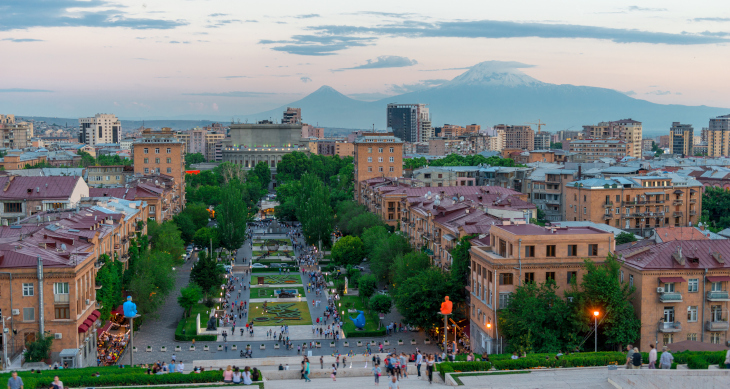Azerbaijan and Armenia: Violence flared up again in the self-proclaimed Republic of Nagorno- Karabakh

Event
Violence flared up in the self-proclaimed Republic of Nagorno-Karabakh where Armenia and Azerbaijan blame each other for breaking out the hostilities. This surge in violence is the worst since the four-day war in 2016, in which more than 100 people died. The deployment of tanks and artillery indicates a higher level of planning than in July 2020 when clashes erupted. The Azerbaijani military is reported to have captured villages close to the Iranian border. Both countries have declared martial law and a general mobilisation. The EU and Russia are concerned about the clashes. They called for an immediate ceasefire and a return to international negotiations.
Impact
Azerbaijan and Armenia dispute over the Nagorno-Karabakh region dates back to 1991 when the region, dominated by Christian Armenians, declared its independence from Azerbaijan (which is predominantly Muslim). It was followed by an armed conflict between Armenia and Azerbaijan that ended by an UN ceasefire agreement in 1994. Since then, negotiations on the status of the Armenia-supported breakaway Republic of Nagorno-Karabakh have remained in deadlock despite mediation from Russia and western powers. Ceasefire violations have grown recently (notably in July 2020) but have usually been followed by a wind-down in hostilities. After the Armenian Velvet Revolution in 2018, there were high hopes that the change in leadership would lead to a resolution of the conflict. However, those aspirations faded away as President Pashinyan (from Armenia) adopted the same firm line on the issue as his predecessor. Now that covid-19 is hitting the Azerbaijani oil-dependent economy particularly hard, the president could use the conflict to rally the population tired of covid-19 restrictions.
During the summer, President Aliyev (from Azerbaijan) warned that he would recapture Karabakh by force if negotiations failed. In this context, it is too early to assess whether the recent hostilities are an attempt to return to the negotiation table or the start of an open conflict between the two countries. Armenia is supported by Russia, which has a military presence in the country, though its support should not be taken for granted. Azerbaijan has stronger military capabilities than Armenia and is supported by Turkey. It should also be noted that it would not be the first time that Russia and Turkey would support opposite camps (cf. conflict in Libya, Syria) while maintaining good relationships.
An escalation of the conflict would have a large impact not only on the Caucasus region but also on the European energy market, as pipelines carrying oil and gas from Azerbaijan are located in this region.
Analyst: Pascaline della Faille, P.dellaFaille@credendo.com